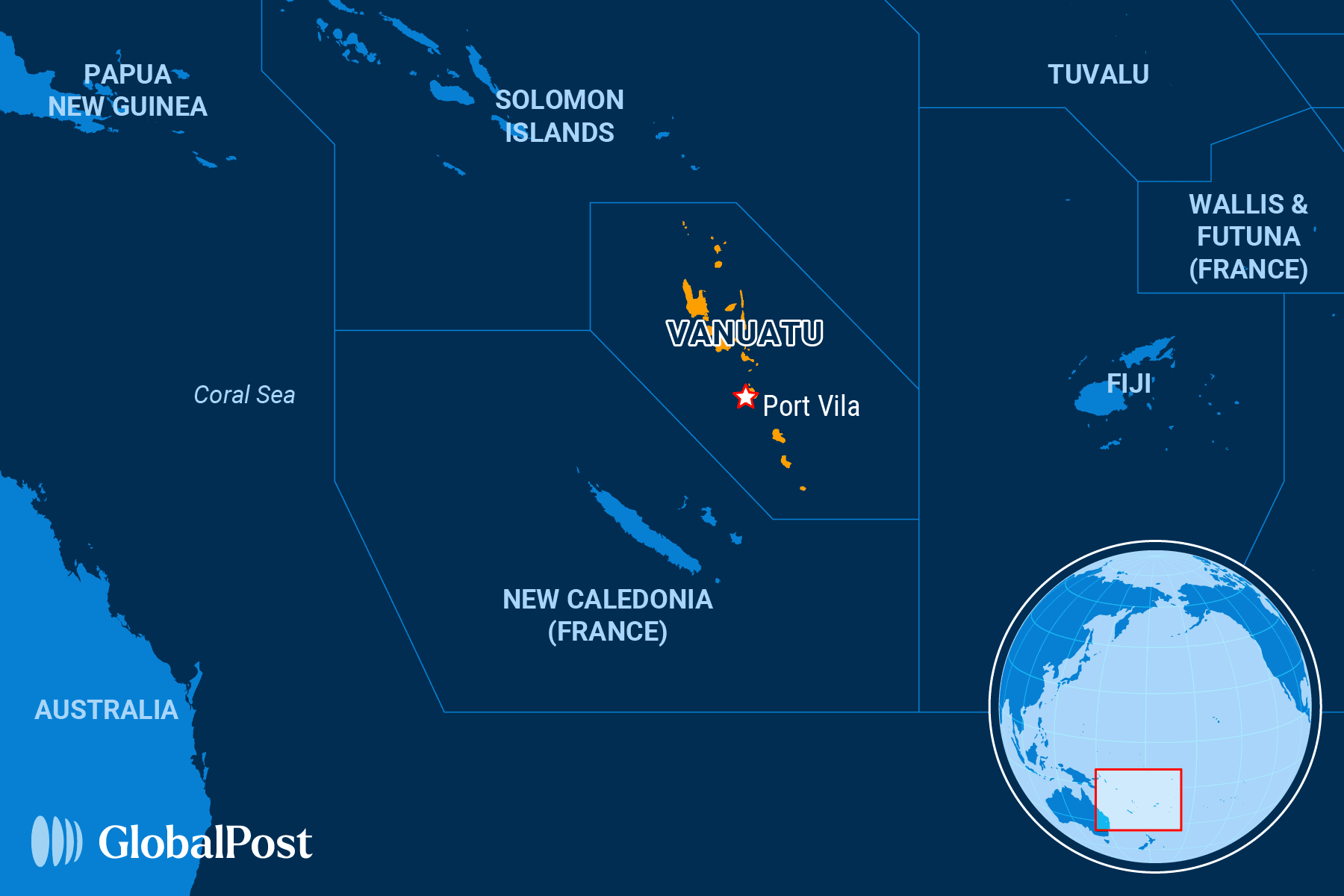The Holy Grail

Last spring, Vanuatu’s voters approved new measures in a referendum to take effect this year that would forbid lawmakers from party hopping – a practice known locally as “jump-jump” that occurs mid-term.
It was among the changes that proponents hoped would bring political stability to the small, Pacific island nation.
Because here, political stability has become “the holy grail.”
The country has had four prime ministers in the past three years. Now, the country is about to get its fifth when voters go to the polls on Thursday in a snap election to choose their new lawmakers. And they are not happy about it, say observers.
“To be honest, nobody expected (this),” Mike Esrome Kaun, who worked on the campaign for the “yes” vote for the referendum, told the Australian Broadcasting Commission. “This is disappointing, a stumbling block that has affected life here.”
The election follows the dissolution of parliament in November, a preemptive move by Prime Minister Charlot Salwai to head off yet another vote of no-confidence by disgruntled lawmakers unhappy with the leader.
“Such motions have in recent years come to define Vanuatu’s creaky democracy,” wrote Agence France-Presse. For example, the newswire noted that Vanuatu changed prime ministers four times between November 2022 and October 2023, usually because of successful no-confidence votes.
Salwai will run again for his seat as will former prime ministers Ishmael Kalsakau and Bob Loughman. They will join more than 180 candidates in 52 constituencies slated to take part.
Vanuatu is one of the more democratic states in the region, according to the Global State of Democracy Initiative. But this democratic vigor comes at a price – the frequent turnover of government, the highest rate in the region.
“The impacts of disrupted leadership and political instability are highly visible,” Anna Naupa, a scholar from Vanuatu, wrote in BenarNews, a regional news service. “Government decision-making and service delivery is grindingly slow.”
That’s especially a problem right now, say observers.
On Dec. 17, a magnitude 7.3 earthquake that struck off Vanuatu killed at least 14 people, injured hundreds more, and caused widespread damage across the archipelago, the Associated Press reported.
It toppled buildings in the capital of Port Vila. Recovery is expected to cost a quarter of a billion dollars, according to Hawaii Public Radio. That is money the country doesn’t have.
Meanwhile, the earthquake has caused a significant economic hit, with some businesses announcing that they will not open until later this year.
Still, businesses in the country are used to recovery from disasters because of the country’s frequent tropical cyclones: Vanuatu is one of the world’s most disaster-prone nations because of sporadic eruptions from the Manaro Voui volcano as well as devastating cyclones and frequent earthquakes.
Still, the biggest problem, say locals, is that the government turnovers delay addressing big issues such as economic development or now “an evolving economic emergency,” according to Peter Judge of the Vanuatu-based Pacific Consulting Limited, writing in Devpolicy Blog.
He notes that the economy has contracted by 3 percent since 2019 while income per capita declined 11 percent in that period. “There is no country at this income level which provides core government services to an acceptable quality,” said Judge.
Vanuatuans know this already.
Locals have been grappling with a lack of services, poor educational and economic opportunities, and high inflation for years. Businesses, meanwhile, have faced increasingly tough conditions, particularly with inter-island transport and air connectivity – Air Vanuatu collapsed in 2024. Meanwhile, the youth unemployment rate is at 10.7 percent and rising even as the country faces a skills drain, the IMF said.
Community leaders say the country’s problems need a stable and effective government to solve these problems as well as prepare for the looming “climate emergency.” Voters hope the new measures approved by last year’s referendum that will come into play after this election will help. They say it won’t be soon enough.
“At this point,” said community leader, Georgilla Worworbu, “enough is enough.”

Subscribe today and GlobalPost will be in your inbox the next weekday morning
Join us today and pay only $32.95 for an annual subscription, or less than $3 a month for our unique insights into crucial developments on the world stage. It’s by far the best investment you can make to expand your knowledge of the world.
And you get a free two-week trial with no obligation to continue.
